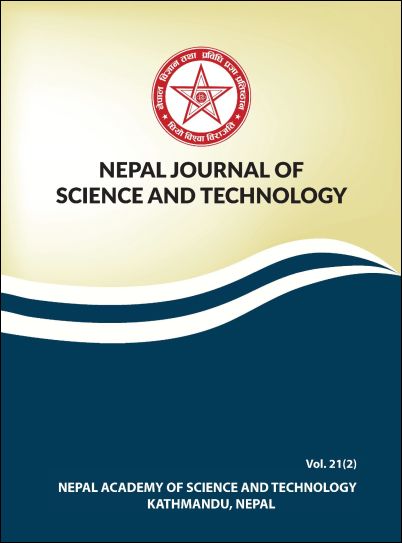Assessment of Ecological Footprint of Urban Squatter and Non-Squatter Settlements: A Case Study of Kathmandu Valley, Nepal
DOI:
https://doi.org/10.3126/njst.v21i2.62359Keywords:
Environmental Behavior Index, Ecological footprint, Correlation coefficient, Environment-friendly practices, Settlement typeAbstract
This research attempted to understand the variation in the ecological footprint of squatter and non-squatter households in terms of the cumulative environmental behavior index (CEBI). A hybrid footprint measurement tool was built considering the principal factors affecting ecological footprint (EF). The correlation between settlement type (squatter and non-squatter) and the EF (as measured by the mean CEBI) was tested using the Pearson product-moment correlation coefficient. Knowledge, attitude and behavior of people regarding the environment sustainability were studied through questionnaires and field observation. The average CEBI of non-squatter settlements was found to be significantly more than that of squatter settlements. Squatter households in the sample had a statistically significantly lower environmental impact (in terms of energy and water consumption) than non-squatter households (p<0.01). The highest contribution to the total CEBI was from the food sector, followed by waste production. People’s attitudes towards the environmental sustanability varied and most of the squatter households had no clear opinion. Knowledge of environment-friendly practices were found comparatively more in non-squatter households. A majority of the respondents were ignorant about renewable energy. Identification of factors mainly responsible for increasing footprint is needed to design interventions for promoting sustainable development. The findings from this research will be useful for urban planners and other concerned professionals to make amends in sector policies for the sustainable development.
Downloads
Downloads
Published
How to Cite
Issue
Section
License
Copyright (c) 2022 The Author(s)

This work is licensed under a Creative Commons Attribution-NonCommercial 4.0 International License.
Authors retain copyright and grant the journal right of first publication.




